On the morning of December 24, the Government Inspectorate held a national online conference to review 5 years of implementing the Law on Anti-Corruption (PCTN). Comrade Nghiem Xuan Cuong, Vice Chairman of the Provincial People's Committee attended the conference at the Quang Ninh bridge.
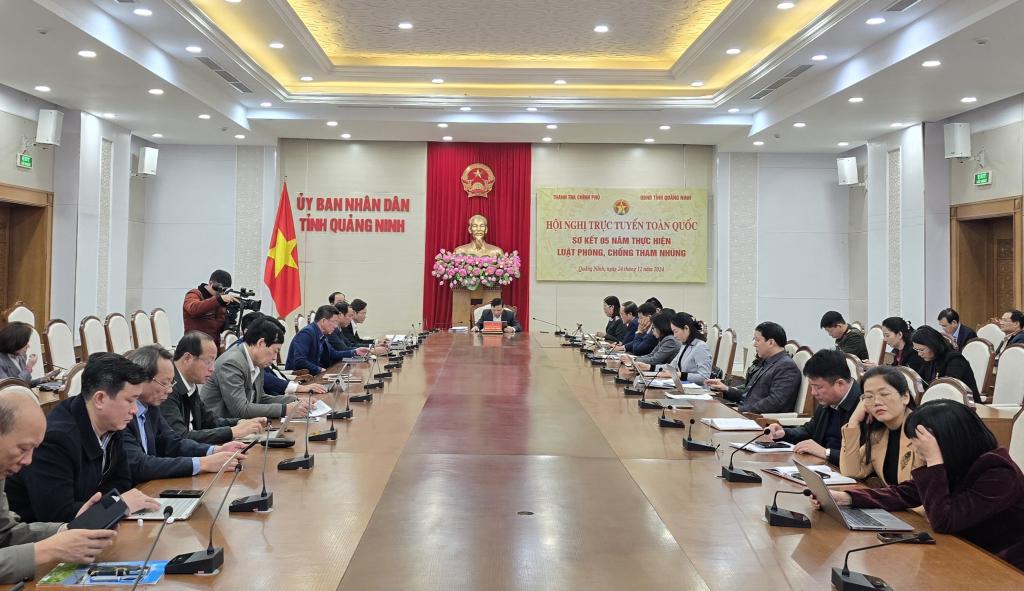
After 5 years of implementing the Law on Anti-Corruption, With tireless efforts, the work of preventing and combating corruption has made important and strong progress. Accordingly, the situation of corruption has been controlled, gradually prevented and tended to decrease. The work of detecting and handling corruption has been directed and implemented methodically, synchronously, resolutely and effectively. This affirms the high determination of our Party and State in the fight against corruption with the spirit of "no forbidden zones, no exceptions, regardless of who the person is"; gradually perfecting the strict prevention mechanism, detecting and handling promptly and strictly so that corruption is "impossible", "not daring", "not wanting", "not needing". Cadres, civil servants and public employees are basically conscious of training and improving their political qualities, ethics and lifestyle, fulfilling their tasks well, conscious of serving the people, and gaining the people's trust; contributing to improving the effectiveness of state management, stabilizing and developing the economy and society, and firmly consolidating national defense and security.
Regarding inspection work, the whole industry has carried out 37,032 administrative inspections and 935,196 specialized inspections and checks. Through inspections, it has contributed to rectifying management and perfecting mechanisms and legal policies in many fields; detecting economic violations of VND 658,383 billion and 28,321 hectares of land; recommending the recovery of VND 558,977 billion and 5,516 hectares of land; issuing 599,203 decisions on administrative sanctions against organizations and individuals with a total fine of VND 27,325 billion; recommending the consideration and handling of administrative violations against 12,934 groups and 15,873 individuals; transferring 1,714 cases and 1,334 subjects to the investigation agency for consideration and handling.
In Quang Ninh province, immediately after the Law on Anti-Corruption 2018 was issued and took effect, the Provincial People's Committee led and directed agencies, units and localities to strictly implement the work of propaganda, dissemination and full understanding of the content of the Law on Anti-Corruption; the Party's regulations and the State's laws on anti-corruption work; directed the implementation in a methodical and timely manner, closely following the direction of the Central Government and local practices with the policy of proactive prevention, taking prevention as the top measure; coupled with detecting and handling corruption, mobilizing the strength of the entire political system; implementing drastically, synchronously and comprehensively in all aspects of work and in all fields, linking anti-corruption with Party building and rectification. The province's anti-corruption assessment and scoring index from 2020 to 2023 is always among the top 5 provinces and cities nationwide.
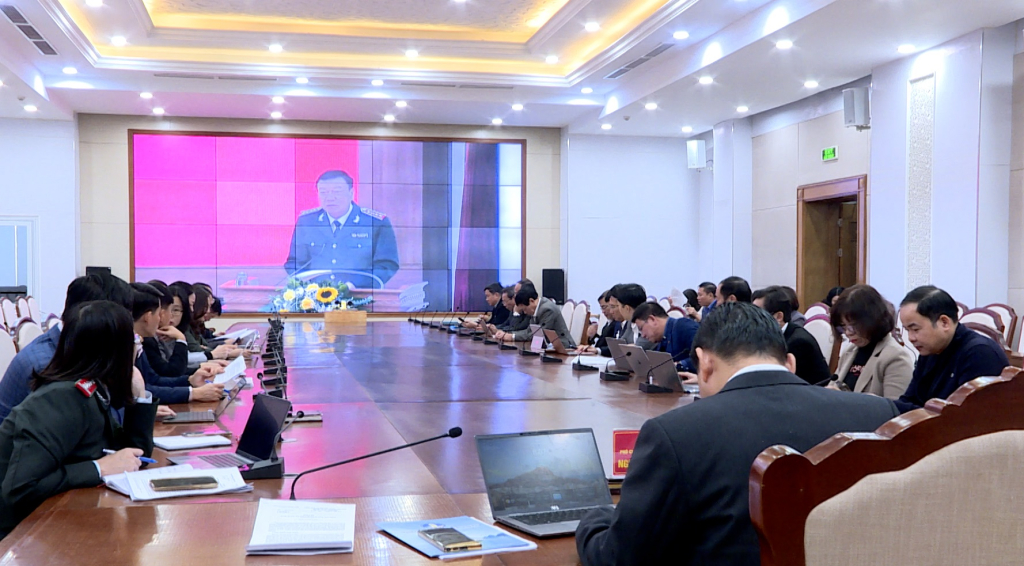
In addition to the important results achieved, anti-corruption work still has certain limitations: Corruption is still very complicated; the effectiveness of some anti-corruption measures is not high; self-detection of corruption by agencies, organizations and units is still low and is mainly discovered through public opinion, denunciations, press reports or when competent agencies conduct inspection, audit and investigation work, violations are discovered; the rate of recovery of corrupt and lost assets is still low; the value of assets to be recovered in corruption and negative cases is still large; legal regulations on handling people with corrupt behavior are not strong enough, not enough sanctions and deterrence...
At the conference, many delegates' comments mentioned the results of implementing the law on anti-corruption in ministries, branches, and localities and the remaining limitations; at the same time, proposed solutions to improve the policy and legal mechanisms as well as measures to organize the enforcement of the law on anti-corruption more effectively in the coming years, focusing on strongly promoting the role of the whole society in anti-corruption.
Source


![[Photo] General Secretary To Lam receives US Ambassador to Vietnam Marc Knapper](https://vphoto.vietnam.vn/thumb/1200x675/vietnam/resource/IMAGE/2025/9/29/c8fd0761aa184da7814aee57d87c49b3)
![[Photo] General Secretary To Lam, Secretary of the Central Military Commission attends the 12th Party Congress of the Army](https://vphoto.vietnam.vn/thumb/1200x675/vietnam/resource/IMAGE/2025/9/30/9b63aaa37ddb472ead84e3870a8ae825)
![[Photo] Solemn opening of the 12th Military Party Congress for the 2025-2030 term](https://vphoto.vietnam.vn/thumb/1200x675/vietnam/resource/IMAGE/2025/9/30/2cd383b3130d41a1a4b5ace0d5eb989d)

![[Photo] The 1st Congress of Phu Tho Provincial Party Committee, term 2025-2030](https://vphoto.vietnam.vn/thumb/1200x675/vietnam/resource/IMAGE/2025/9/30/1507da06216649bba8a1ce6251816820)

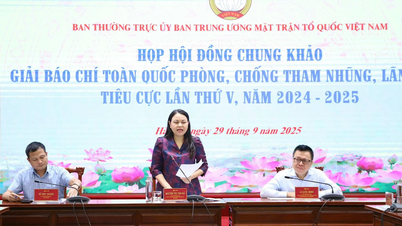

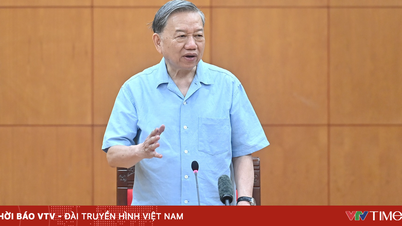

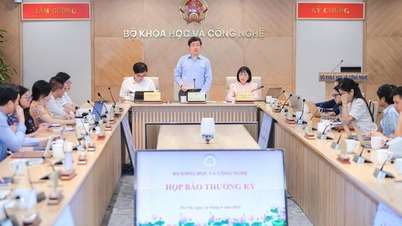

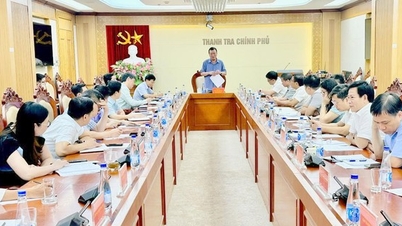






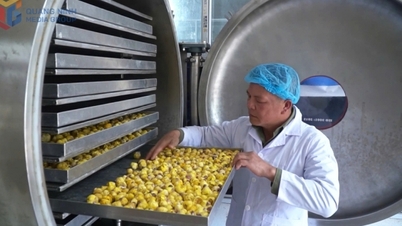

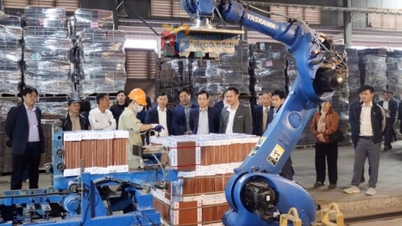
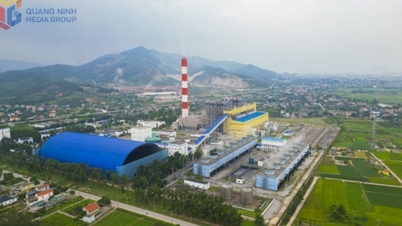
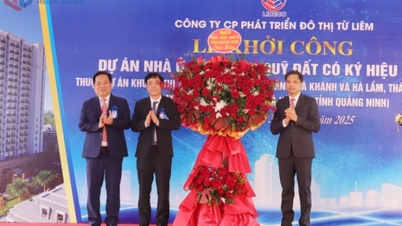





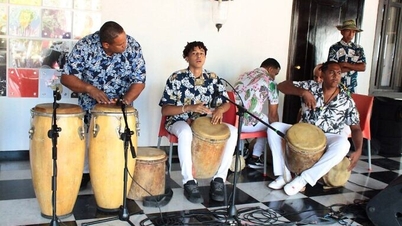
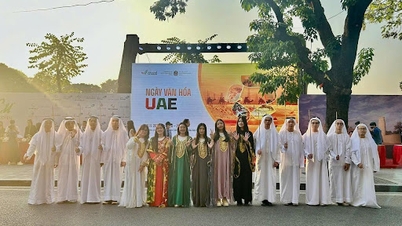


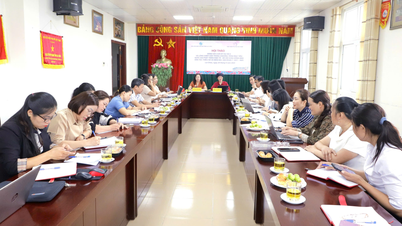
![[Photo] General Secretary To Lam attends the ceremony to celebrate the 80th anniversary of the post and telecommunications sector and the 66th anniversary of the science and technology sector.](https://vphoto.vietnam.vn/thumb/1200x675/vietnam/resource/IMAGE/2025/9/29/8e86b39b8fe44121a2b14a031f4cef46)



























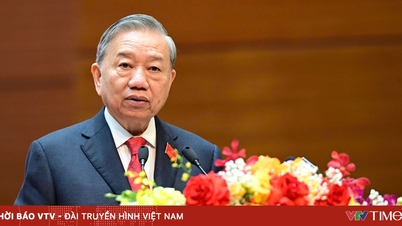
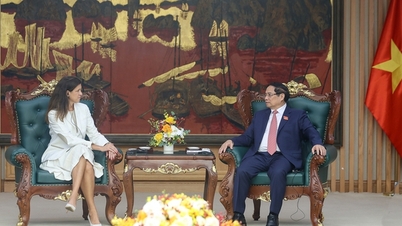
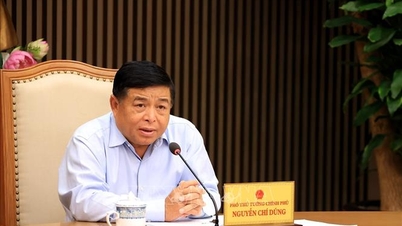

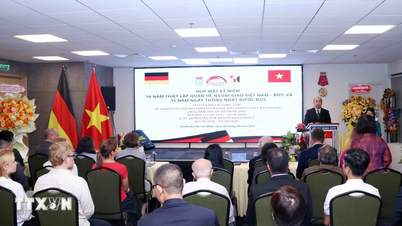
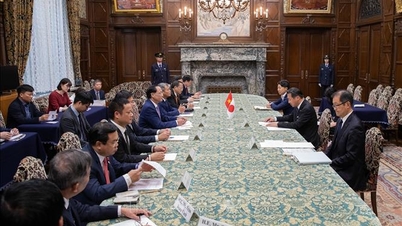


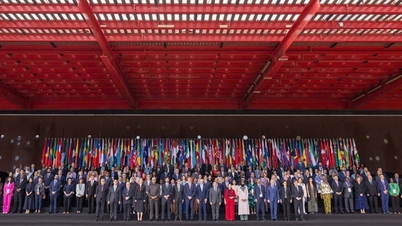
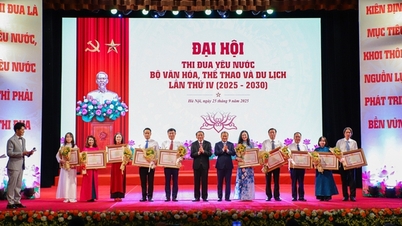




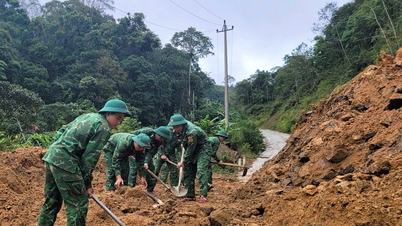

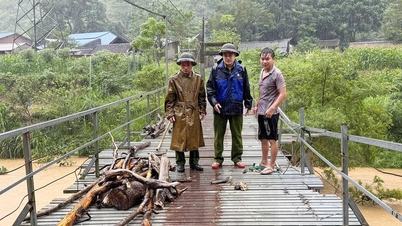






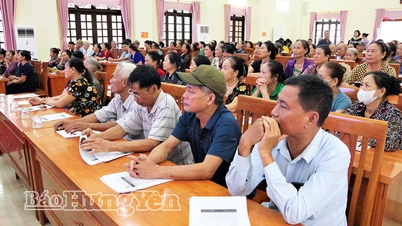












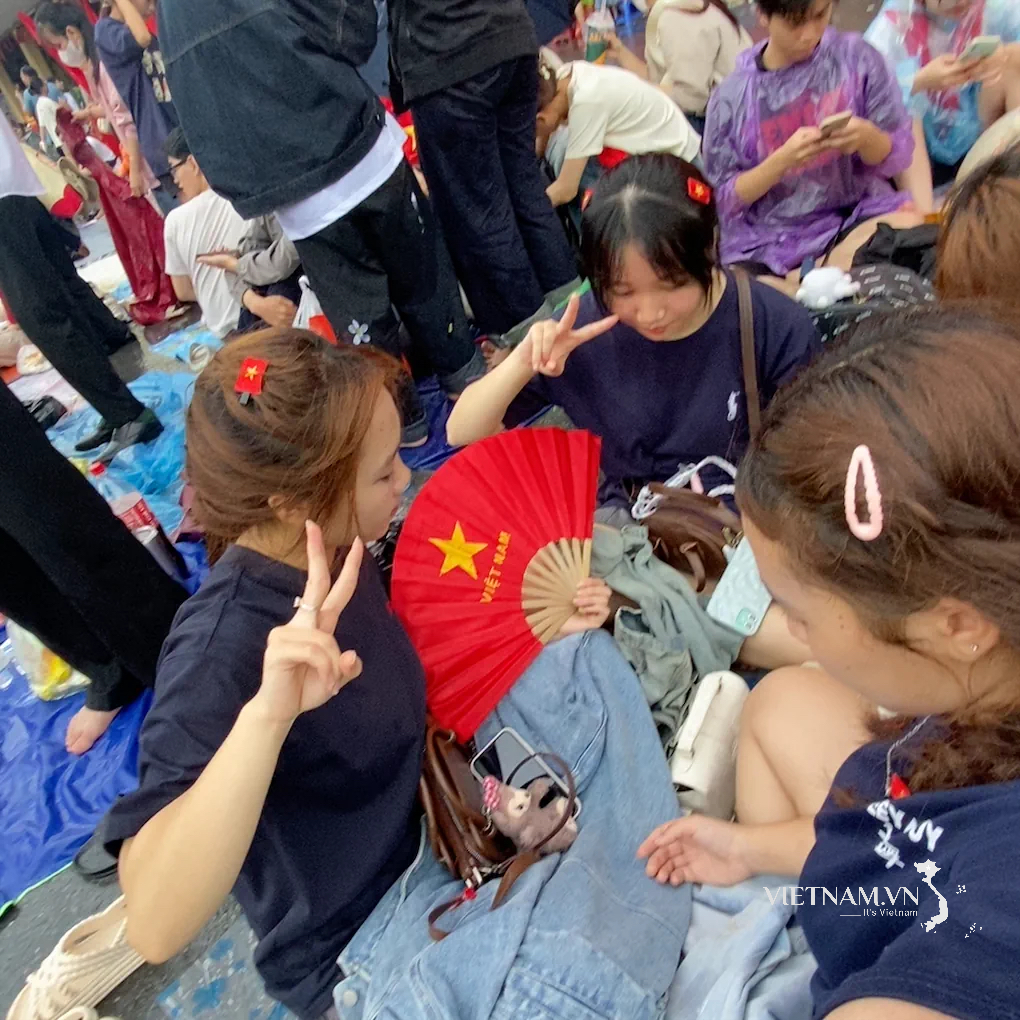


Comment (0)